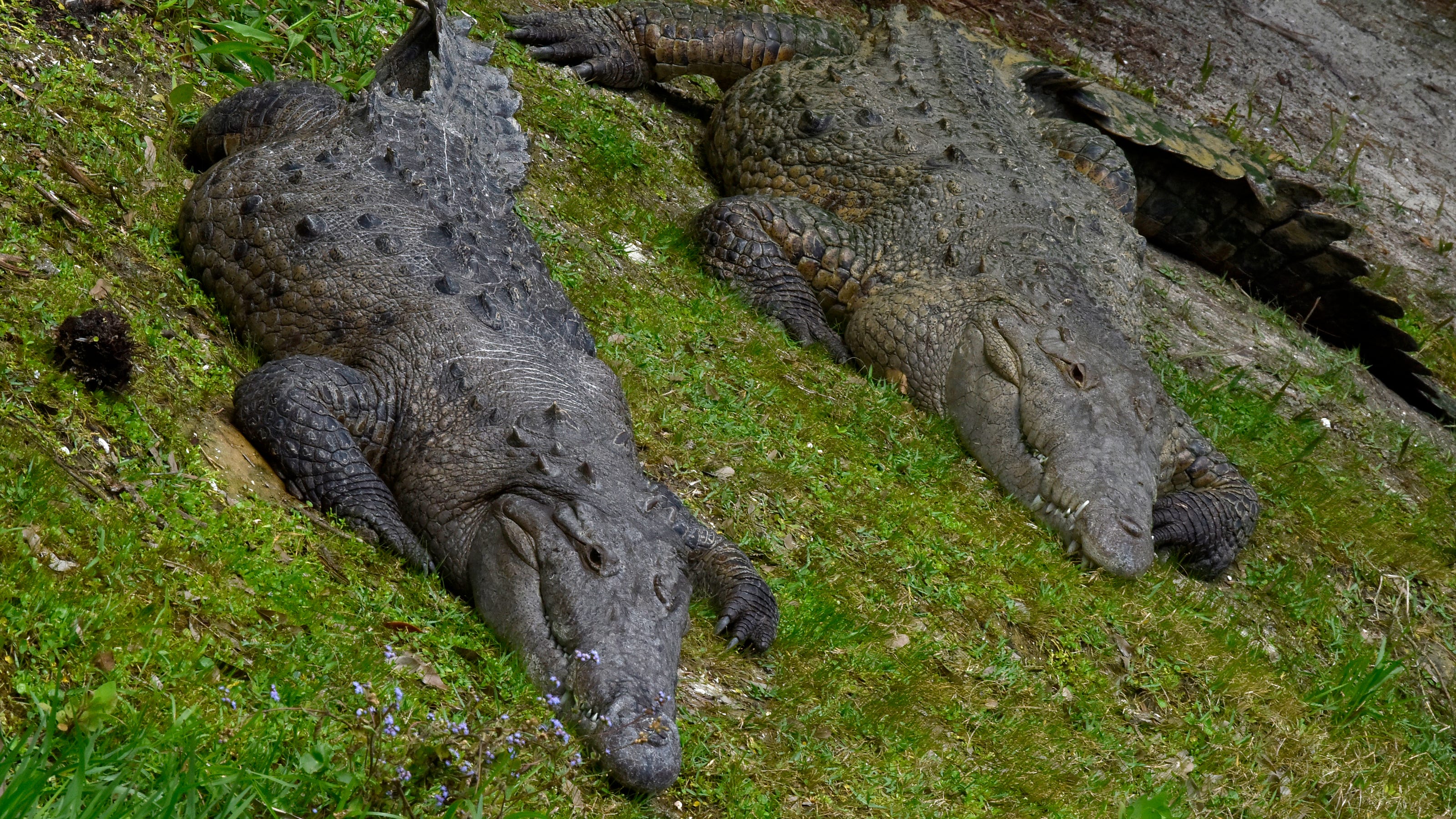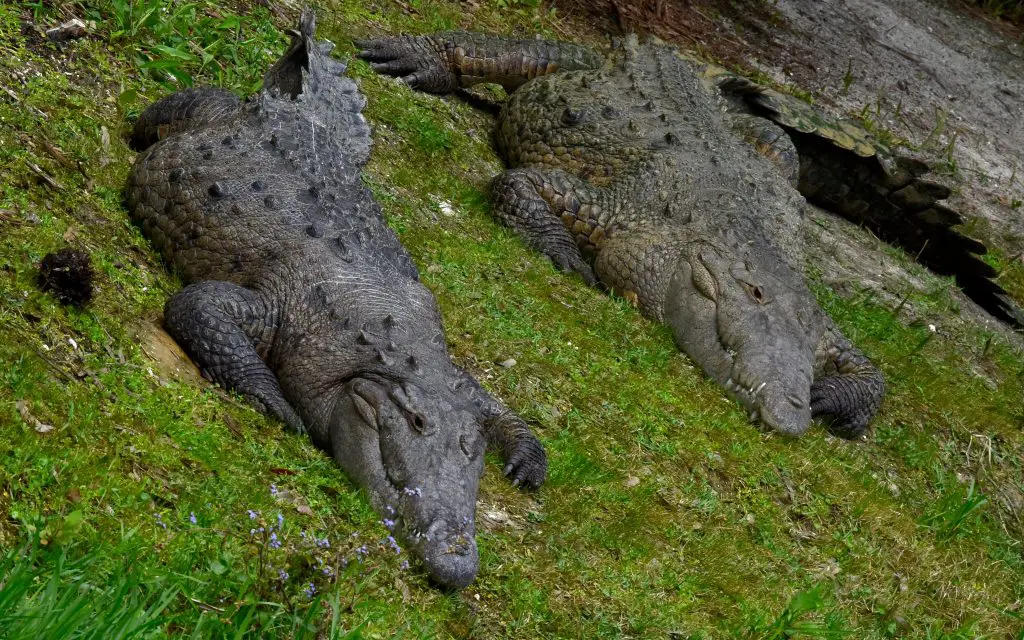Florida is known for its sunny beaches, warm weather, and vibrant nightlife. However, there’s one thing that stands out from the rest – alligators. Yes, you read that right. Florida is home to countless alligators, lurking in swamps, rivers, and even residential areas.
If you’re planning a trip to Florida, you might be wondering if you’ll come across these prehistoric creatures. The answer is yes. But don’t worry, alligators are a natural part of Florida’s ecosystem and as long as you take certain precautions, you’ll be able to enjoy your visit without any issues. So, let’s dive deeper into this fascinating topic and discover everything you need to know about alligators in Florida.
Yes, Florida is home to alligators. With over 1.3 million alligators in the state, Florida has the largest alligator population in the United States. These reptiles can be found in swamps, lakes, rivers, and even in residential areas. It is important to exercise caution and follow safety guidelines when in areas where alligators may be present.

Does Florida Have Alligators?
Florida, the sunshine state, is famous for its beautiful beaches, theme parks, and warm weather. But did you know that Florida is also home to one of the most dangerous reptiles in the world – the American alligator? In this article, we will explore the presence of alligators in Florida, where they can be found, and what makes them such an important part of the state’s ecosystem.
What is an Alligator?
Alligators are large reptiles that belong to the crocodilian family. They are found in freshwater environments such as swamps, rivers, and lakes. Alligators are known for their large size, powerful jaws, and armored bodies. They have a broad snout and a rounded shape, which distinguishes them from their cousin, the crocodile. Alligators are carnivores and feed on fish, turtles, birds, and mammals.
Alligators are native to the southeastern United States, with Florida having the largest population. According to the Florida Fish and Wildlife Conservation Commission (FWC), there are approximately 1.3 million alligators in the state of Florida. Alligators can be found in all 67 counties of Florida, inhabiting both natural and man-made bodies of water.
Alligator Habitat
Alligators are found in a variety of habitats in Florida, from freshwater marshes and swamps to rivers and lakes. They prefer slow-moving water with vegetation and submerged logs that provide cover and basking spots. Alligators also use burrows dug into the banks of water bodies for shelter.
Alligators are cold-blooded, which means they rely on their environment to regulate their body temperature. During the winter, alligators become dormant and hibernate in burrows or under vegetation. In the summer, they bask in the sun to warm up and regulate their body temperature.
Alligator Behavior
Alligators are solitary animals and are most active during dusk and dawn. They are known for their ability to remain motionless and blend in with their surroundings, making them excellent predators. Alligators are also opportunistic and will eat whatever prey is available.
Alligators are also known for their courtship behavior, which occurs in the spring. Males will bellow loudly to attract females and engage in physical displays to establish dominance. Females will lay their eggs in mounds of vegetation, which they guard fiercely until they hatch.
Alligator Conservation
Alligators were once hunted to near extinction for their valuable hides and meat. However, with the passage of the Endangered Species Act in 1973, alligators were protected and their populations have rebounded. Today, alligators are classified as a species of least concern by the International Union for Conservation of Nature.
The FWC regulates alligator hunting in Florida through a lottery system to ensure sustainable populations. Alligators are also important to the ecosystem of Florida, as they help control overpopulation of fish and other aquatic animals.
Alligator Safety
Alligators are wild and unpredictable animals that should be treated with caution and respect. It is important to never approach or feed an alligator, as this can cause them to lose their fear of humans. Alligator attacks are rare, but they can be deadly.
If you encounter an alligator, it is important to keep a safe distance and never turn your back on them. If an alligator acts aggressively, it is important to back away slowly and seek shelter. It is also important to be aware of alligator warning signs in areas where they are known to inhabit.
Alligator Benefits
Despite their fearsome reputation, alligators play an important role in the ecosystem of Florida. They help control overpopulation of fish and other aquatic animals, and their burrows provide shelter for other animals like turtles and birds. Alligator hides and meat are also valuable resources that support local economies.
Alligators can also be a major tourist attraction in Florida, with many visitors coming to see them in their natural habitats. Alligator farms and sanctuaries also provide educational opportunities for visitors to learn about these fascinating creatures.
Alligator vs. Crocodile
Alligators and crocodiles are often confused, but there are several physical differences that distinguish them. Alligators have a broad, rounded snout, while crocodiles have a longer, V-shaped snout. Alligators are found in freshwater environments, while crocodiles can be found in both freshwater and saltwater environments. Alligators are also smaller than crocodiles, with the largest alligator on record being 14 feet long, while the largest crocodile was over 23 feet long.
Alligator Conclusion
Florida is home to a large population of alligators, which are an important part of the state’s ecosystem. Alligators can be found in a variety of habitats and are known for their size, powerful jaws, and armored bodies. Despite their fearsome reputation, alligators play an important role in controlling overpopulation of fish and other aquatic animals, and their hides and meat are valuable resources.
It is important to treat alligators with caution and respect, as they are unpredictable wild animals. Alligator attacks are rare but can be deadly, so it is important to be aware of alligator safety and warning signs. Alligators are fascinating creatures that are an important part of Florida’s natural heritage.
Frequently Asked Questions
Florida is known for its unique wildlife and alligators are one of the most famous creatures that roam the state. Here are some common questions and answers about alligators in Florida.
What is the population of alligators in Florida?
It is estimated that there are over 1.3 million alligators in Florida. This number includes both wild and captive alligators. While this may seem like a lot, the population has been able to sustain itself through conservation efforts and hunting regulations. Alligators can be found in almost every body of water in Florida including swamps, lakes, rivers, and even golf course ponds.
It is important to remember that alligators are wild animals and should be treated with caution and respect. Never approach or feed an alligator, as this can lead to dangerous situations for both humans and the alligator.
Are alligators dangerous?
Alligators are wild animals and should always be treated with caution. While they typically avoid humans, they can be dangerous if provoked or if they feel threatened. It is important to keep a safe distance from alligators and never attempt to feed or touch them.
If you encounter an alligator in the wild, it is best to slowly and calmly back away and give the alligator plenty of space. If you see an alligator that appears to be aggressive or is approaching you, seek shelter and call the Florida Fish and Wildlife Conservation Commission for assistance.
Can you swim in Florida waters with alligators?
Swimming in waters with alligators is not recommended. Alligators are known to inhabit many bodies of water in Florida, including rivers, lakes, and even some beaches. While alligator attacks on humans are rare, they do occur. It is best to swim in designated swimming areas that are supervised by lifeguards and do not have any signs of alligator activity.
If you do choose to swim in waters that may have alligators, it is important to be aware of your surroundings and keep a safe distance from any alligators that you may encounter.
What should you do if you see an alligator in your backyard?
If you see an alligator in your backyard or near your home, it is important to keep a safe distance and not approach the alligator. Alligators can move quickly on land and can be very dangerous if they feel threatened.
Call the Florida Fish and Wildlife Conservation Commission for assistance. They have trained professionals who can safely remove alligators from residential areas and relocate them to their natural habitat.
What is being done to protect alligators in Florida?
The Florida Fish and Wildlife Conservation Commission has implemented regulations and conservation efforts to protect alligators in Florida. These efforts include hunting regulations, habitat conservation, and public education programs.
In addition, alligators are listed as a species of special concern in Florida, which means that they are protected by state law. It is illegal to harm or harass alligators in Florida without a proper permit.
The Truth About Alligators in Florida – Florida Living
In conclusion, we can confirm without a doubt that Florida is indeed home to alligators. These prehistoric-looking creatures can be found in various bodies of water, including rivers, lakes, and even golf course ponds! With their powerful jaws and sharp teeth, it’s best to keep a safe distance and admire them from afar.
Despite their intimidating appearance, alligators play a crucial role in Florida’s ecosystem. They help regulate the population of other animals and contribute to a healthy balance in the region. It’s important to respect these creatures and understand their importance in the natural world.
So, if you’re planning a trip to Florida, keep an eye out for these fascinating creatures. You never know where you may spot one basking in the sun or swimming in the water. Just remember to give them their space and appreciate them from a safe distance.


